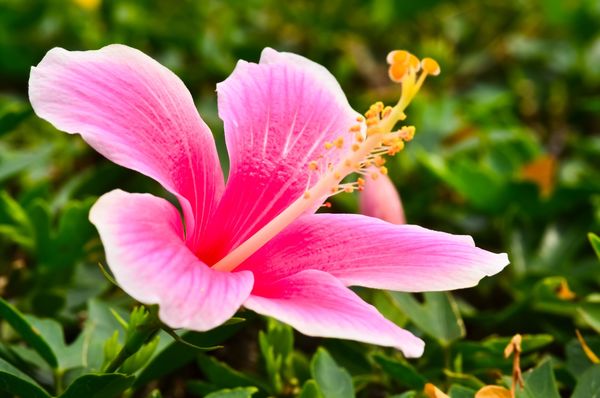How to Overwinter Tropical Plants & Tender Bulbs
How to Overwinter Tropical Plants & Tender Bulbs
Gardeners living in zone 7 or below, take note! Overwintering is an excellent technique for preserving those sensitive plants that won’t survive outdoors in the winter freeze. Tropical favorites such as Hibiscus and Bougainvillea can wait out the winter in the comfort of your home. Now that we’re well into the winter season, hopefully your tender bulbs and tropical plants are safe and sound in a cool part of your home. If not, well– there’s always next year! The Humble Gardener is here to give you the lowdown on overwintering and how it can save those (often expensive!) tender bulbs and tropical plants until springtime sun arrives.

- Select your plants:examples of plants that do well with overwintering include Gladiolus, the Glory Lily, Dahlia, Freesia, Caladium, Canna, Banana, Tuberous Begonias, Elephant’s Ear, Mandevilla, Hibiscus and Bougainvillea.
- Time it right: Some plants can be removed from the outdoors as early as fall– for example Gladiolus and Caladium. Others require a little more waiting. You can allow frost to kill the tops of Canna plants as long as rhizomes do not freeze. Then just lift out the plant, chop off the dead part and store rhizomes wrapped up in newspaper and enclosed in paper bags. Begonias are similar. After the tops of these plants are killed by frost, gently remove them from the soil and ensure that tubers have not frozen. After letting them dry out for a week, they’re ready for storage.
- Provide the right climate:Most tender bulbs and tropical plants require temperatures between 40-60 degrees for overwintering. An unheated garage or shed is typically a good location. Specific requirements vary depending on the plant, so check out this comprehensive guide for more details.
- Create an ideal overwintering environment: Tubers and rhizomes should be stored in well-ventilated containers, packed with sawdust, peat moss or vermiculite. If your garden contains tropical plants that don’t have tubers or rhizomes, you can still overwinter. Just make sure you have the space and time to dedicate to them! They’ll require occasional watering to keep the soil moist.
- Keep an eye on your plants.Prevent mold and over-drying by frequently checking on your plants. If tubers become overly dry, you can give them a spritz of water to rehydrate.
- Replant!Once the coast is clear and all signs of frost have vanished, you can repot your plants outdoors and enjoy their beautiful foliage and fragrance once more!
SKM: below-content placeholderWhizzco for CRH

